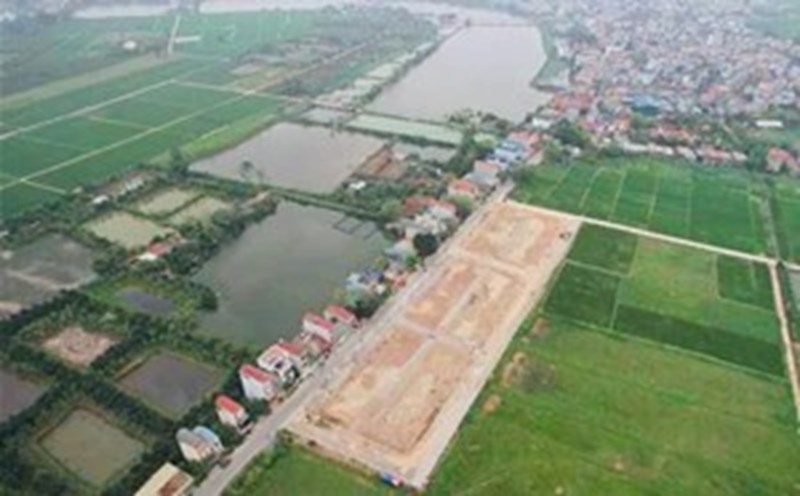In the "hot" issues of land use fee collection, recently many real estate businesses have made recommendations on the regulation of collecting an additional 5.4%/year on the amount of land use fee that has not been paid, even in cases where businesses are completely not at fault, which is not appropriate.
In response to the above comments, in the draft amendment to Decree 103, the Ministry of Finance has just proposed an additional plan to reduce the land use fee collection rate to 3.6%/year instead of 5.4% or completely remove the additional collection regulation.
However, from the perspective of the enterprise, this additional 3.6% fee (if any) is essentially an interest or late payment fine applied to the period of time when the enterprise has not been able to fulfill its financial obligations on land. The reason is not that the enterprise is slow, but that the authorities have not completed the valuation and calculation of land use fees.
Discussing at the Workshop "Land price, land tax... how to make it reasonable?" organized by Thanh Nien Newspaper on July 22, a representative of Novaland said that this enterprise has 13 projects that have been allocated land since 2015, 2016 but up to now, there has been no announcement from the tax authority. And there must be a notice for the enterprise to be able to pay land use fees.
Typically, the RichStar project was given a figure of VND689 billion by the Ho Chi Minh City Valuation Council in 2016, but when submitted to the City People's Committee, it was stuck in reviewing the origin of the land. Up to nearly 10 years, if acoefficient of 5.4% is applied, Novaland will have to pay an additional VND370 billion. For the project alone, this is an "huge" amount of money.
Mr. Dang Hong Anh, Chairman of the Vietnam Young Entrepreneurs Association, said that this regulation is creating a paradox and poses many potential legal and economic risks to businesses.
First, contrary to the principle of error. All sanctions for late payment or fines must be based on the principle of "fault". In this case, the delay in paying land use fees does not come from the subjective will or financial capacity of the enterprise, but due to delays in the administrative process of the competent authority. Applying this additional fee is like "fining" a business for not being at their fault. This goes against the principle of fairness and transparency in management.
Second, the double burden for businesses. Because not only do businesses have to pay unfair "fines", they also face the reality of not being able to implement projects, not being able to mobilize capital, leading to lost opportunity costs, increased financial costs (bank loan interest) while projects stagnate. This is a double burden, which can push businesses to the brink of bankruptcy or force projects to stop.
Regarding the additional fee for a series of enterprises due to slow land valuation, Mr. Le Hoang Chau - Chairman of the Ho Chi Minh City Real Estate Association said that the Government's regulation on additional fee collection is in accordance with the Land Law, but why is the regulation on fee collection of 5.4% and currently the Ministry of Finance proposes to collect 3.6% while it is not the fault of enterprises, because the right to issue land prices quickly or slowly is up to the State.
Mr. Chau also said that the Ministry of Finance is calculating 3.6% based on the first proposal, but this fee is unreasonable. If the Land Law has not been amended, it must stipulate the collection, but the collection rate is appropriate.
"The Association proposes that instead of collecting 5.4% or 3.6%, the Ministry of Finance should submit to the Government an additional fee of only 0.5%. This provision of the Land Law is not in accordance with the Law on Promulgation of Legal Documents, which is to only apply summons with lighter legal obligations, and a heavier provision was not previously applied. When we asked for opinions to amend the Land Law, we proposed to completely eliminate this fee," said Mr. Le Hoang Chau.












